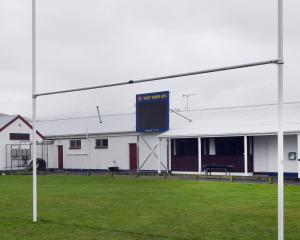Unaffordable rental property in Dunedin is driving lower-income families into social housing, with one property manager saying the situation could get worse if rental properties are required to lift their standards.
In the past six months, Housing New Zealand has seen demand increase dramatically, with the agency housing about one family a day in Dunedin.
Increased demand has seen the waiting list of families waiting for one of Dunedin's 1451 state houses increase to 64.
Housing New Zealand regional manager Symon Leggett said a range of factors was considered when deciding whether someone was eligible for state housing, including income, ability to afford low-cost private accommodation, their existing accommodation and their particular needs.
Housing New Zealand aimed to allocate a home to a tenant within 45 to 75 days, he said.
Housing New Zealand tenants pay rent based on what they can afford, not market prices.
Anglican Family Support director Nicola Taylor said rising rents was the main reason low-income earners and beneficiaries needed Housing New Zealand support.
Anglican Family Support worked with Housing New Zealand to find accommodation for people.
The amount of money people needed just to get in the front door of a private rental was out of reach for many families, she said.
''The amount of money needed upfront for bond and two or three weeks' rent can't be covered by someone on a low income or benefit,'' she said.
Quality housing that was affordable was difficult to find, and the quality of Housing New Zealand homes had improved greatly during the past four years, she said.
Real Estate Institute of New Zealand Otago spokeswoman Liz Nidd said more landlords had been improving their properties, which meant rental costs increased.
One of the best ways for investors to make more money was to improve a property and increase its price, which meant some people on low incomes were driven out of the market.
''At the end of the day, investors are there to make money and if they can get a better price for their property they will,'' Ms Nidd said.
Any requirement for property owners to meet certain requirements, such as the warrant of fitness proposal put forward by the Dunedin City Council, would increase rents, she said.
''It goes round in circles - if you improve your property you can charge higher prices and because of the quality you will get renters seeking out your property.
''That's just how the market works.''
Council events and community development manager Rebecca Williams said any policy on rental standards would take into account any price increases it might cause.
''It's only very early days in the project and we are keenly aware of what the policy may do to the market and what pressure that can put on people,'' she said.












